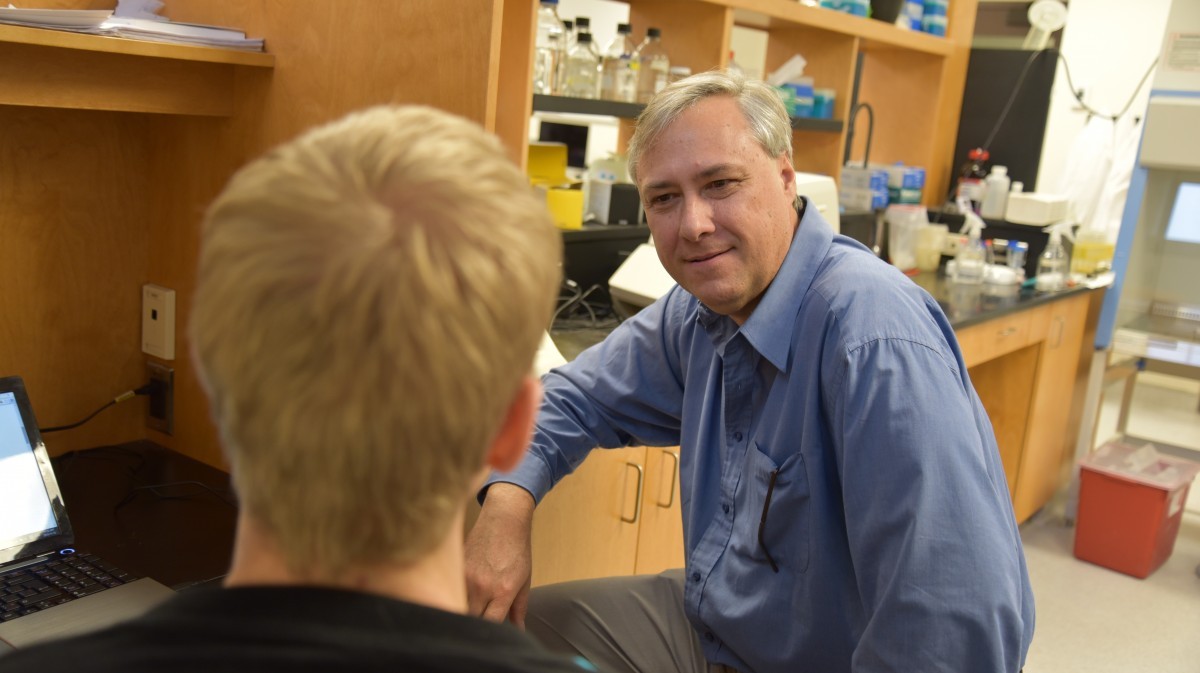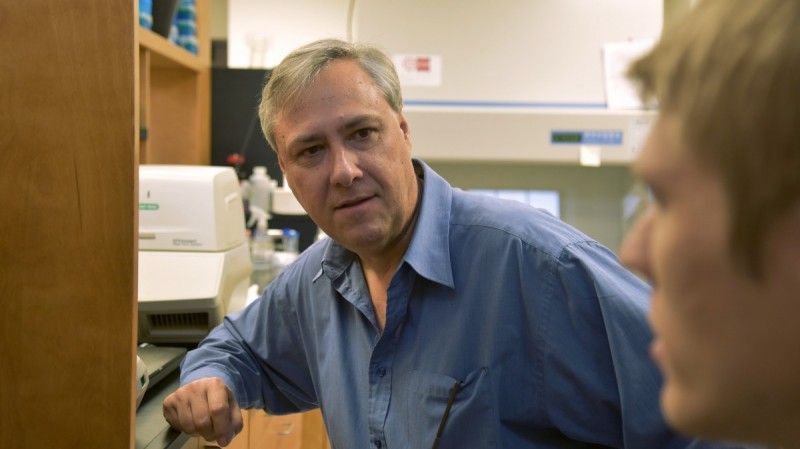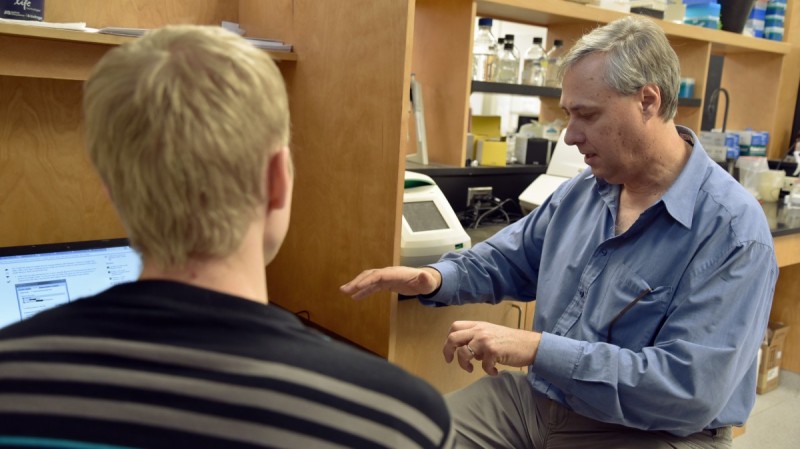
Richard Sparling Earns Award by Mentoring Students to Take It Slow
Getting from "I don't know" to "Eureka" is actually a matter of pausing, not frantic effort.
A good teacher passes along the right information; a great teacher makes the right information engaging; an exceptional teacher engages you in finding the right information.
This fall, Richard Sparling, was recognized as an exceptional teacher with the awarding of a University of Manitoba Excellence in Graduate Mentoring Award. As a professor in the Faculty of Science – Department of Microbiology, he is a microbial physiologist and biochemist, but it is his methods above and beyond the field of science that really sets him apart.
“The vocabulary you use must match your audience and not to be afraid to use humour to get the point across.”
“I failed to get into drama school,” said Richard. “I didn’t apply … but I’ve always liked theatre.”
“It means I am comfortable at the undergraduate level with respect to teaching and even sometimes making a bit of a fool of myself. They seem to be amused by that.”
He advises others, “The vocabulary you use must match your audience and not to be afraid to use humour to get the point across.”
“So the mentoring of graduate students is also making them capable of being comfortable speaking about their work.” “It’s not just ‘you need to develop a body of work’ … you need to be able to feel comfortable presenting that data to the world.”
The development of going from ‘gee, that’s odd’ to the ‘eureka!’ moment.
Speaking for himself, “To challenge their critical thinking is something I really, really value. Getting them to know that they already know a lot of things – ‘You know what know: what’s the next step?’”
“When the student gives me data and we look at it together and the student is disappointed that the results were not what was predicted and going from the ‘well, let’s see the mistakes’ … to ‘gee, that’s odd’ … to ‘turn that into a hypothesis’.”
“And then the next experiment confirming it is really the ‘eureka!’ moment – really it’s all of the critical thinking that’s involved.”
In some of the senior courses he teaches, “I will intentionally teach something that is untrue – but published – and then tear it apart: ‘What’s wrong with this picture’?”
“To me, the key to teaching, both senior undergrads and gradate students, is developing critical thinking.”
Take your time and reflect on what you are doing
His best advice: “Whoa … slow down … reflect.”
“If a student were to come with ‘you know, this is not working’ … and ‘I am confused’; usually it involves missing something. And I don’t think students reflect enough.”
Is it a can’t-see-the-forest-for-the-trees problem? “Sometimes there is a detail on a ‘tree’ that is important and sometimes ‘don’t bother with the trees – there’s a forest here’.”
“Knowing when to look back at the forest versus when you need to focus. For that you really need to ask, ‘What, really, am I looking for?’“
“Again, it’s summed up as thinking critically … reflect on your thoughts.”









Definitely one of the best professors at the University